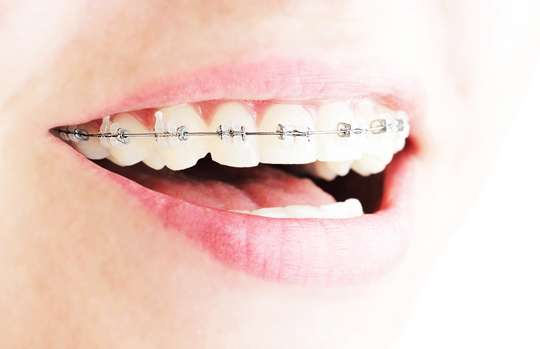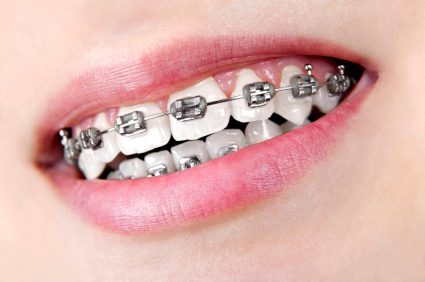
Has your morning coffee woken you up, not only with caffeine but with a sharp pain? Has your ice cream met you with a stinging feeling? Chances are you have sensitive teeth. When your teeth are sensitive, this can produce a range of mild discomfort to great pain in your mouth when exposed to heat and/or cold. Many people experience this sensation between their late teenage years and their mid-thirties.
What Causes Tooth Sensitivity?
Tooth sensitivity happens when nerve endings in your teeth are exposed directly to the elements – like deep sea diving in the Arctic without a wetsuit. Dentin is a tubelike structure that’s dense with nerves but shielded from direct stimuli in healthy teeth. Tooth enamel covers dentin in the visible part of the tooth; cementum covers the dentin located above the gum line. However, these coatings are prone to wearing thin over time – especially near the gum line. When either protective layer dissipates, the nerve endings in your dentin get exposed to the full brunt of the heat and cold, causing pain and sensitivity. There are many ways this can happen:
Toothbrush Abrasion: This basically just means you’re brushing too hard. The rough back and forth motion on your teeth can cause the enamel to become thin and expose the dentin underneath.
Tooth Grinding: If you wake up in the morning with jaw pains or headaches and don’t know why, it could be due to grinding your teeth at night. The clenching or grinding of teeth can remove the enamel due to the constant pressure placed on your teeth
Tooth Whitening: Teeth may typically become sensitive for a brief moment when undergoing bleaching or similar procedures.
Dental Erosion: Acidic foods that come in constant, direct contact with your teeth can break down the enamel and cause your teeth to be more sensitive.
Dental work: Sometimes a routine cleaning could make the teeth feel temporarily sensitive. If you had some sort of surgery, such as a root canal, expect this sensation to go away in about a month.
Tooth Decay/Gum Disease: Plaque or tartar buildup can cause damage to the gums and the structure of the tooth, making the area sensitive and eventually difficult to clean. Call your dentist to seek the best treatment if you reach this stage.
Aging: Over time, the gums can naturally shrink back with age and expose the dentin underneath. Some research, such as this CNN article, claims that this could also be hereditary. This is no fault of your own.
What Can I Do?
– Brush your teeth with fluoride toothpaste. You can purchase a three pack of Crest Cavity Protection Fluoride Anticavity Regular Toothpaste on Amazon for $12.94 as of July 1, 2016. If you prefer not to brush with fluoride, then another great option is to find toothpastes with potassium nitrate. You can purchase Colgate Enamel Health Sensitivity Relief Toothpaste on Amazon for $16.87. The potassium nitrate is excellent for enamel health and reduces the uncomfortable pain by blocking the nerves in the dentin. Potassium nitrate isn’t for everyone, but it does require continued use to see if this option works best for you. Check this article for other toothpastes to use with sensitive teeth.
– Change your brushing habits. Make sure you brush at least twice daily with a medium to soft bristle tooth brush in a circular motion, instead of back and forth. You can purchase a six pack of medium bristle Colgate Extra Clean Toothbrushes on Amazon for $5.36 or a six pack of soft bristle Colgate Extra Clean Toothbrushes for $5.50 as of July 1, 2016. Take caution against aggressive brushing because it could wear away the enamel and cementum while you brush. It is going to require more effort on your part to make this change to your routine, but your teeth will thank you for it.
– Reduce intake of sugary foods and acidic beverages. If you can’t possibly live without your soda, it is recommended that you drink it with a straw so that the beverage does not come in direct contact with your teeth. After eating, especially when dealing with sugary or acidic foods and beverages, it is advised that you wait at least one hour after consumption to brush your teeth. When consuming some foods and drinks, the enamel becomes softer and you run the risk of brushing the sugar right onto your teeth and rubbing down on your enamel right when it’s in its weakest state.
– Wear a mouthguard. If teeth clenching or grinding is a chronic problem for you, a mouthguard can help relieve a majority of the pressure that you put on your teeth. This tactic is more preferable during the nighttime, as most people find themselves only doing it while they sleep. If you find yourself clenching your teeth during the day, remind yourself to relax your jaw and that your teeth should be slightly separated. This may take a bit of practice, but soon you will be able to develop that positive habit!
– Talk to your dentist. If you have gum disease, think you have some sort of tooth decay, or are planning to get your teeth whitened, it is important to talk to your dentist about the procedures and treatments that it takes to get your teeth back on track in the safest and least painful manner!
Tooth sensitivity can suck the joy out of so many things; it can even make breathing painful on a chilly day. Luckily, applying the tips above can help you manage your sensitivity, slow erosion, and even rebuild enamel. And, if you’re looking for a dentist, use TalkLocal to find a dentist in your area.
—
The owner of this website is a participant in the Amazon Services LLC Associates Program, an affiliate advertising program designed to provide a means for sites to earn advertising fees by advertising and linking to Amazon properties including, but not limited to, amazon.com, endless.com, myhabit.com, smallparts.com, or amazonwireless.com.










